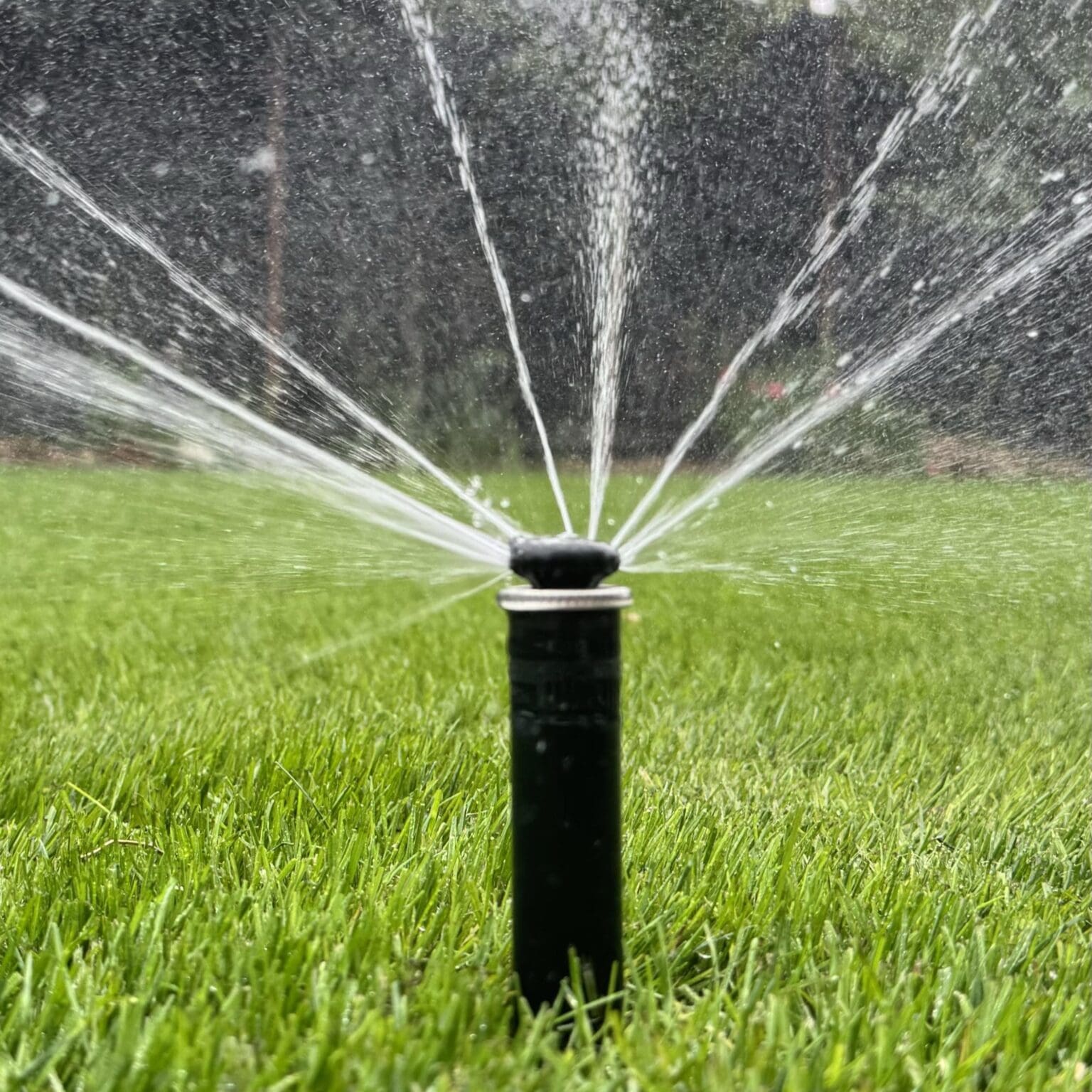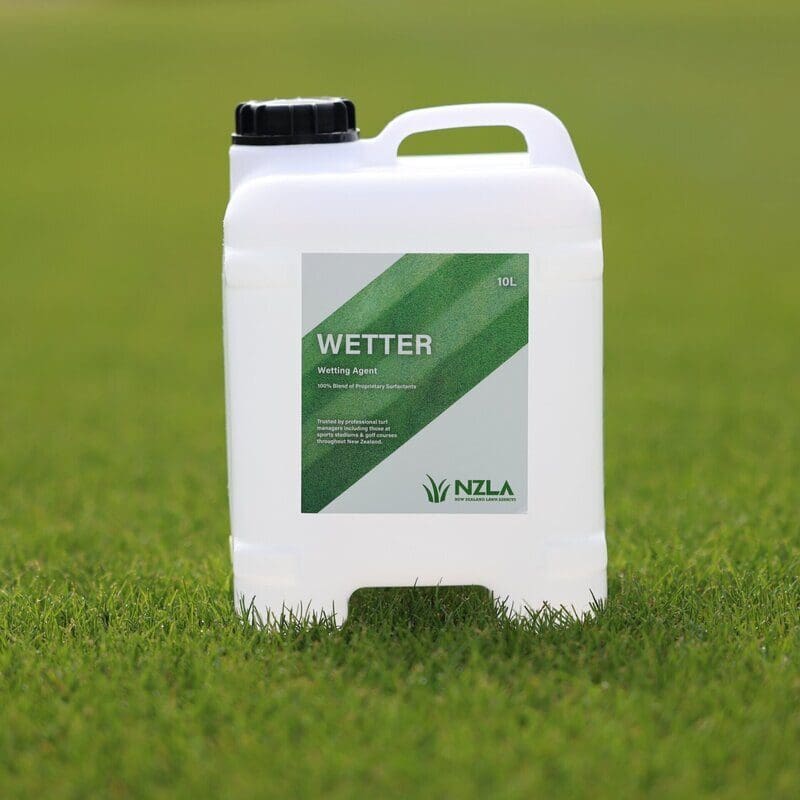How to water your lawn
Home / Lawn Guides / How to water your lawn

How to water your lawn
Many people don’t know how to water their lawn properly, leading to overwatering or underwatering, both of which can cause problems. Overwatering, for example, can cause diseases, attract pests, and encourage the growth of certain weeds that thrive in saturated and wet soils.
When should you water your lawn?
The first thing to consider when watering your lawn is the time of day.
Watering in the early morning is the best time. We recommend having your irrigation come on somewhere between 5am and 7am. This is because the water will have time to soak into the soil before the heat of the day evaporates it.
Watering during the middle of the day is not recommended as the water will evaporate too quickly, wasting water and potentially scorching your grass.
Evening watering is another option once the temperatures have dropped, however you should avoid doing it too late as water sitting on the foliage overnight can lead to fungal issues over time.
Different grasses, different water needs
Next, consider how often to water your lawn. The frequency will depend on the type of grass you have, your climate, and your soil type.
A general rule of thumb with cool season turf (such as rye, fine fescue and tall fescue) is to water your lawn two or three times a week, giving it about 2.5cm to 4cm of water per week.
With warm season grass (like kikuyu and couch) this can be reduced to just over 1cm to 2.5cm of irrigation per week as these species are more drought tolerant. However, it’s important to monitor your lawn’s soil moisture and alter irrigation to take into account any rain.
One of the most important things is to ensure you’re not watering your lawn every day, as this creates a shallow root system as roots are constantly in contact with water.
By irrigating two to three times a week, you encourage a deeper root system as the plant’s roots have to search for water. This is commonly referred to as ‘training the roots’ and you’ll have a more drought tolerant lawn as a result.
The tuna can test
A very common and simple trick to determine if you’re watering too much or not enough is to place empty tuna cans in various places on your lawn while you’re watering. When the can has 1cm to 1.5cm of water in it, you know you’ve watered enough.
When running the irrigation, time how long it takes to fill the tuna can by 1.5cm. Then if you don’t change any of your irrigation setup, you can simply run your irrigation for the set amount of time it took to fill the tuna cans to the mark on the can. Remember to adjust your irrigation based on recent rainfall.
Placing tuna cans in various spots around the lawn also helps identify any irrigation coverage issues that need attention.
Get professional help

NZLA sells two professional turf wetting agents that help retain moisture during the summer months: NZLA Wetter (a liquid product) and Wetter GR (a granular product).
NZLA Wetter also helps prevent dry patch and hydrophobic soil, which is when the soil repels water (this appears as pooling on your lawn surface). To get the best results from NZLA Wetter, we recommend applying monthly from about September to April.
By following these tips you’ll have a stronger, healthier and more drought tolerant lawn.
Key tips
Watering early in the day is best. If you water in the evening, the grass will stay wet overnight, creating humidity, which could lead to fungal diseases.
Aim for 2.5cm – 4cm of irrigation per week over 2-3 irrigation days.
Avoid watering in windy conditions to ensure even coverage.
Avoid daily watering. You want to train your lawn to be more drought tolerant. Frequent short waterings will promote a shallow root system.
Weather conditions will require you to change up your normal watering routine. If there are a few days in a row of substantially hot weather, you may need to add some extra waterings into your routine. Likewise, if you have a few days of wet weather, you don’t need to water your lawn during that time